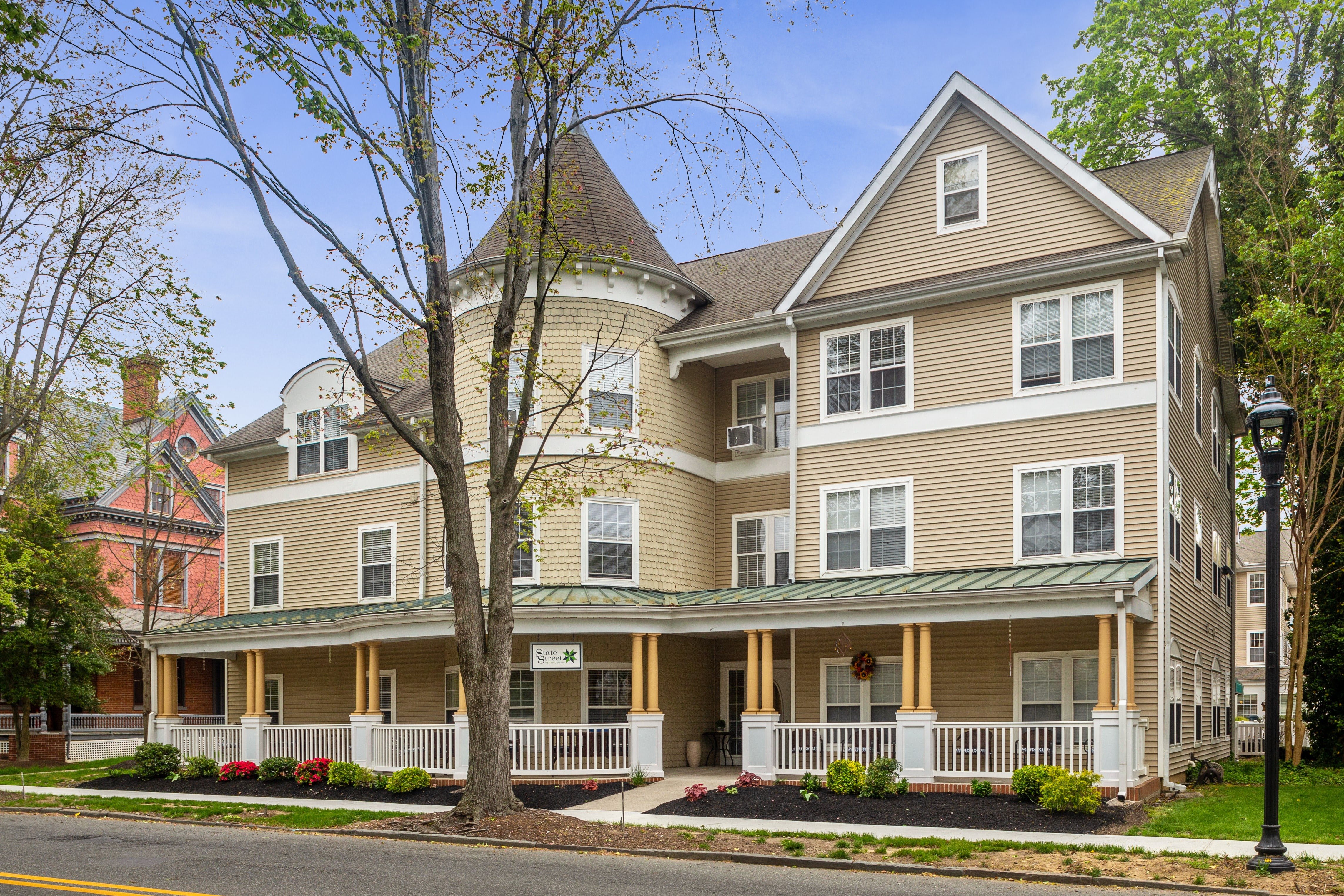Small Memory Carehomes Charlotte: A Heartfelt Alternative
Small Memory Carehomes Charlotte: A Heartfelt Alternative
Blog Article
All Concerning Memory Care Providers: Why Tiny Memory Treatment Homes Are a Terrific Choice
Memory care solutions play an essential function in supporting people with Alzheimer's and dementia. Little memory treatment homes stick out for their individualized method and intimate setting. With lower staff-to-resident ratios, these homes cultivate stronger connections and customized treatment. Homeowners profit from enhanced social interactions and a safe setting. As households check out alternatives, comprehending the one-of-a-kind benefits of small memory care homes comes to be essential. What aspects should be considered when choosing the best home?
Understanding Memory Treatment Services
While numerous might be acquainted with general senior treatment options, understanding memory care services is vital for households encountering the obstacles of cognitive decline. Memory treatment particularly accommodates people with problems such as Alzheimer's disease and other forms of dementia. These services provide an organized atmosphere that concentrates on enhancing the high quality of life for citizens with specialized care and support.Memory care centers are designed to assure safety and security and security, often featuring secured settings to protect against roaming. Trained staff participants are readily available around the clock to assist with day-to-day activities, drug monitoring, and personal treatment. Furthermore, memory care programs typically include cognitive excitement tasks, tailored to involve citizens and advertise mental wellness. Families can gain from recognizing these services, as they allow notified decisions concerning their enjoyed ones' care, making certain that their details needs and choices are addressed in a thoughtful and helpful fashion.
The Advantages of Small Memory Treatment Houses
Tiny memory care homes use distinctive advantages that can significantly improve the lifestyle for locals with cognitive impairments. One substantial advantage is the intimate environment, which permits individualized communications amongst staff and residents. This smaller setting fosters significant partnerships, lowering feelings of isolation and anxiety commonly experienced by individuals with memory issues.Additionally, the lower staff-to-resident proportion in little memory treatment homes makes it possible for caregivers to give even more alert supervision and assistance. This strategy not only boosts safety and security but additionally promotes a sense of safety and security for the residents.Moreover, tiny memory care homes can adapt quickly to the special demands and choices of each local, permitting for a much more homey atmosphere. Such an environment can urge social engagement and participation in tasks, ultimately improving the daily experiences of those dealing with cognitive impairments.
Personalized Care Program for Homeowners
Individualized care plans are essential in memory treatment homes, as they cater to the one-of-a-kind demands and preferences of each local. These strategies start with comprehensive assessments performed by skilled professionals, who examine cognitive capabilities, case history, and personal passions. This customized technique warranties that care is not only effective however likewise respectful of each person's dignity and autonomy.Moreover, personalized care plans are versatile, allowing modifications as citizens' needs evolve gradually. This flexibility promotes a sense of safety and security and familiarity, which is necessary for individuals coping with memory challenges. Caregivers are educated to apply these plans constantly, giving support that straightens with the citizens' regimens and preferences.Ultimately, customized treatment plans enhance the lifestyle for locals by advertising involvement, self-reliance, and health, making them a fundamental aspect of memory treatment services in tiny memory care homes.
Creating a Home-Like Atmosphere
Producing a home-like environment is vital for promoting comfort and familiarity in memory treatment setups, as it greatly influences citizens' psychological wellness. Little memory care homes usually focus on individualized touches, such as warm shade schemes, family members photos, and familiar furnishings plans, which help locals feel extra comfortable. Incorporating components similar to a traditional home, like comfy living spaces and common areas, motivates a feeling of belonging.Moreover, using all-natural light and exterior rooms can improve the ambience, promoting relaxation and serenity. Personnel play a significant function in keeping this environment by involving with citizens in a thoughtful fashion, treating them like household. Routine activities, such as food preparation or gardening, can also add to a home-like feeling, using possibilities for locals to take part in purposeful experiences. Generally, creating a nurturing environment supports cognitive function and emotional stability, making it an important aspect of memory treatment solutions.
Boosted Social Interaction and Neighborhood
Enhanced social interaction and area are vital elements of memory treatment solutions. By cultivating individualized social interaction and producing a family-like atmosphere, these solutions promote meaningful links among homeowners. Group events and activities even more encourage involvement, assisting people really feel more included and sustained.
Personalized Social Engagement
While social communication is vital for total wellness, several individuals with memory impairments often have a hard time to involve meaningfully with others. Personalized social involvement in memory care homes addresses this challenge by developing customized tasks that satisfy homeowners' distinct interests and abilities. By concentrating on individual choices, caregivers can promote links that reverberate deeply with each person. Activities such as art therapy, music sessions, and assisted conversations advertise cognitive excitement and emotional expression. In addition, little team setups motivate camaraderie and permit more intimate communications, improving sensations of belonging. This approach not just fights feelings of seclusion but also equips residents to preserve a sense of identity, eventually adding to improved mental health and wellness and quality of life.
Family-like Atmosphere
In a memory care setup, fostering a family-like atmosphere significantly boosts social interaction and builds a feeling of area among residents. Smaller sized memory care homes often focus on intimate atmospheres, enabling residents to develop closer links with one another and personnel participants. This nurturing ambience advertises count on, which is vital for individuals with memory disabilities. Citizens are much more most likely to talk and share experiences, creating a helpful network that alleviates feelings of loneliness. The experience of shared rooms and regimens adds to a feeling of belonging, even more motivating social communication (personalized memory care). In such settings, psychological bonds grow, resulting in enhanced overall health and a better of life for homeowners as they navigate their daily experiences with each other
Team Activities and Events

Safety and Safety And Security Functions in Small Homes
Numerous tiny homes created for memory care include important security and safety features to guarantee the well-being of locals. These homes commonly make use of protected entry and departure indicate prevent wandering, an usual concern among people with memory impairments. Furthermore, security systems and alarm systems improve surveillance, making certain that staff can without delay reply to any kind of uncommon activities.Interior formats are tailored for safety and security, with reduced hazards such as sharp corners and clutter-free paths. Handrails and non-slip floor covering are typically installed to decrease the danger of falls. Personnel are trained in emergency procedures, guaranteeing they are prepared for various situations.Moreover, individualized care strategies may include assessment of individual safety requirements, supplying tailored services for each homeowner. Generally, these security and protection functions produce a nurturing setting where locals can thrive while keeping their self-respect and self-reliance.
Just how to Choose the Right Memory Treatment Home
How can families assure they pick one of the most suitable memory treatment home for their enjoyed ones? The choice requires careful consideration of several aspects. First, households need to review the facility's staff credentials and training, ensuring that caretakers are experienced in managing memory-related problems. Next, it's important to examine the home's atmosphere, focusing on security functions and whether it fosters a feeling of area and belonging. Seeing the center can offer insight right into day-to-day tasks and the social environment, which are crucial for mental excitement and emotional wellness. In addition, family members must inquire about the care plans offered, ensuring they are tailored to private needs. Ultimately, taking into consideration the home's place and accessibility for family check outs can add to a smoother change. By dealing with these elements, families can make an informed decision that prioritizes their loved one's comfort and lifestyle in a memory treatment setup.
Regularly Asked Inquiries
What Qualifications Should Personnel Members in Memory Treatment Houses Have?
Personnel members in memory care homes need to have appropriate certifications, experience in mental deterioration care, solid interaction abilities, and compassion. Recurring training in behavior monitoring and healing treatments improves their capacity to sustain locals successfully.
Exactly How Do Memory Care Solutions Differ From Standard Assisted Living?
Memory care solutions focus specifically on people with memory impairments, providing customized support and structured settings. On the other hand, traditional assisted living provides general support with daily activities, lacking the customized technique essential for those with cognitive challenges.
What Kinds of Activities Are Provided in Memory Care Houses?
Memory treatment homes typically supply a variety of activities made to engage residents. Common options consist of art therapy, songs sessions, cognitive video games, workouts, gardening, and gatherings, all targeted at enhancing health and cognitive function.
Can Residents Bring Their Own Valuables to Memory Care Houses?
Citizens can commonly bring their own possessions to memory treatment homes, allowing them to customize their space - personalized memory care. This method helps develop an acquainted setting, advertising comfort and a sense of identification for the individuals

Just How Are Relative Involved in the Care Refine?
Household participants play a necessary function in the care process, usually taking part in decision-making, participating in care conferences, and offering psychological assistance. Their participation fosters a collaborative setting, improving the resident's overall health and quality of life. While numerous may be acquainted with basic elderly treatment options, recognizing memory care solutions is crucial for families encountering the obstacles of cognitive decline. These services provide a structured atmosphere that concentrates on improving the top quality of life for citizens through specialized care and support.Memory treatment facilities are made to ensure security and security, often including secured settings to prevent roaming. Individualized care strategies are vital in memory treatment homes, as they cater to the special demands and preferences of each citizen. Staff participants in memory care homes need to have appropriate certifications, experience in mental deterioration treatment, solid communication skills, and concern. Memory care services concentrate specifically on individuals with memory impairments, supplying customized support and organized atmospheres.
Report this page